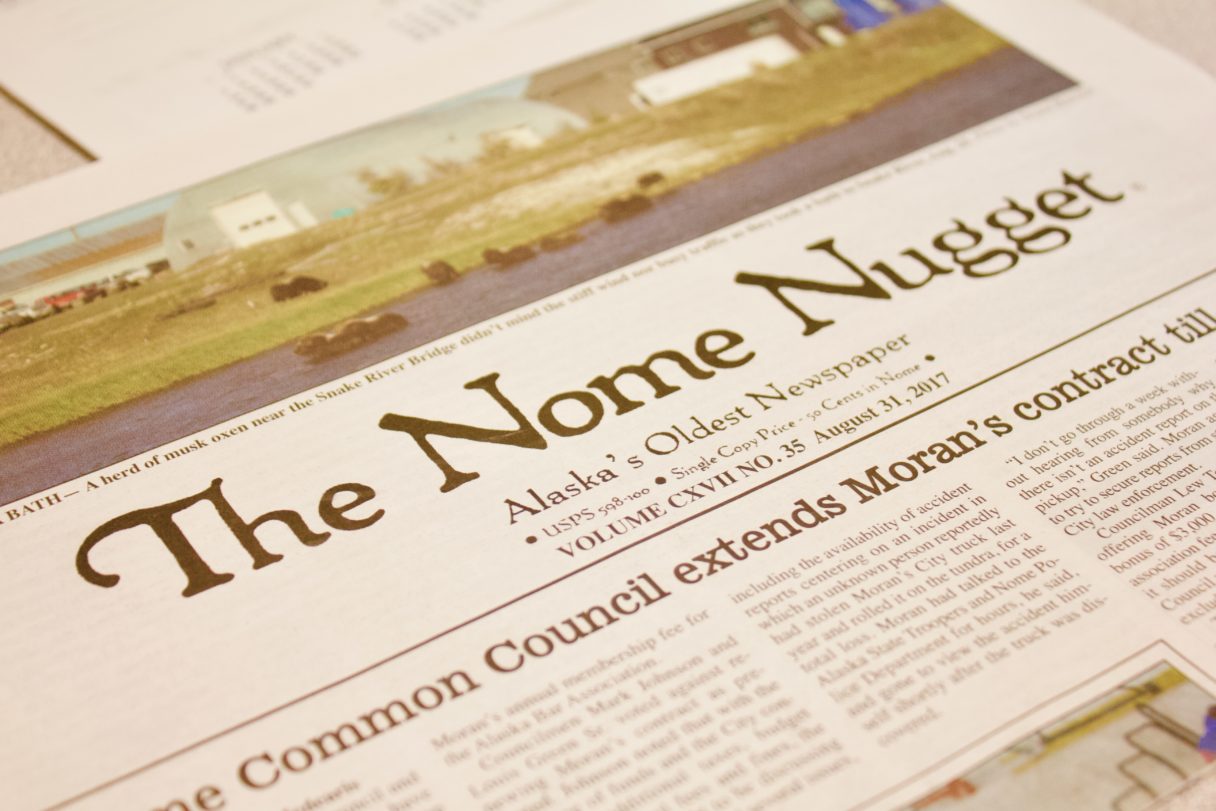
The state’s financial regulator fined Austin Ahmasuk $1,500 for a letter to the editor he had published in the Nome Nugget in 2017. They said he should have filed paperwork under regulations that require shareholders to disclose their connections before soliciting votes called proxies.
Austin Ahmasuk argued that his letter wasn’t supporting or criticizing any individuals running to lead the Alaska Native Claims Settlement Act (ANCSA) village corporation of which he’s a shareholder. And that the regulations didn’t apply to his letter’s broad call to action.
The Alaska Supreme Court agreed.
“The (state financial regulator’s) interpretation and application of its proxy solicitation regulation are unreasonable on the facts of this case,” the justices ruled in a decision published on Friday.
Susan Orlansky argued the case on Ahmasuk’s behalf for the American Civil Liberties Union of Alaska. She told CoastAlaska on Friday when he wrote the letter nobody had even put their name forward to run and that troubled the Supreme Court.
“He really isn’t talking about votes for him or her,” she said.
Rather, he’d encouraged fellow shareholders with voting powers not to file discretionary proxies. Those are basically blank ballots that can later be used by a slate of candidates usually endorsed by the sitting board of directors.
Critics say blank ballots handed to the board slate give incumbents an advantage over independent challengers.
Some justices were skeptical when, under questioning last year during oral arguments, the state’s attorney conceded that even an open letter urging shareholders to attend a meeting, technically falls under regulated speech.
Acting on complaints, state financial regulators routinely investigate and sanction shareholders for comments made in print and online that are perceived to sway a corporate board election. Like an opinion piece in a newspaper. But more often it’s an online post in a Facebook shareholder forum.
Sitnasuak Native Corporation wasn’t party to the lawsuit. But some of the state’s regional Native corporations filed briefs supporting the state’s power to regulate shareholder speech. Doyon, Calista and the Bristol Bay Native Corporation were among them.
Orlansky says it’s good to have this decision to guide future actions.
“I would say that lawyers for other shareholders as well as lawyers for (financial regulators), or for Native corporations ought to read this decision very carefully, because I think the decision holds some suggestions,” she said.

That’s because the ACLU argues the state is stifling free speech. It’s suggested the state could look to the federal guidelines established by the federal Securities and Exchange Commission. Since 1992, the feds have opted to regulate shareholder speech less broadly out of constitutional concerns.
Orlansky says the Alaska Supreme Court ruling is a win for her client. And she says the justices’ decision outlines how the state’s regulations potentially fall afoul of the U.S. Constitution on free speech and due process grounds.
“But the Supreme Court very clearly didn’t decide those questions it did what courts often do, and decide the issue in front of it is very specifically nothing further,” she added.
State attorneys say they’re reviewing the court’s decision.
“The court emphasized that its decision is limited to the particular facts and circumstances of this case and less about the medium used to communicate,” wrote Assistant Attorney General Charlotte Rand in a Friday email. “Communications might be proxy solicitations even if those communications are in mass media or social media.”
The Division of Banking and Securities welcomes questions about compliance with its regulations, she added.
This story has been updated to elaborate on the court’s reasoning.






























